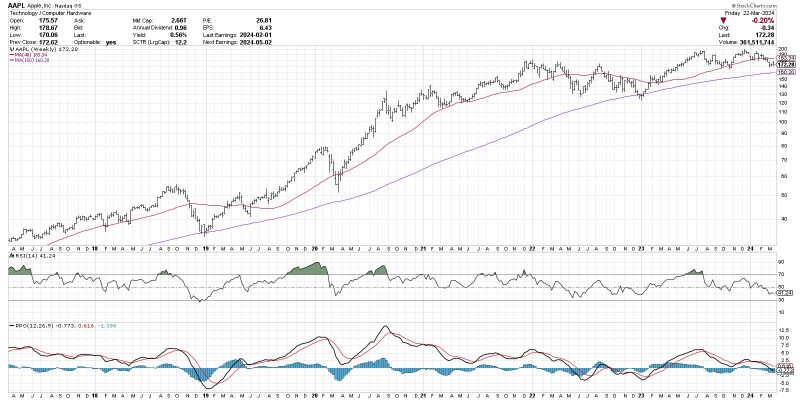In today’s rapidly evolving technological landscape, few companies command as much attention and influence as Apple Inc. With a history of groundbreaking innovations and a loyal customer base, Apple has long been regarded as a titan in the tech industry. However, not all analysts are convinced that Apple’s dominance is guaranteed to continue.
One key aspect of the bear case against Apple is the company’s heavy reliance on its flagship product, the iPhone. While the iPhone has been a massive success story for Apple, generating billions in revenue year after year, it also represents a potential risk. As smartphone technology matures and market saturation increases, there are concerns that Apple may struggle to maintain its dominance in this highly competitive space.
Another point of contention for some is Apple’s pricing strategy. The company is known for selling premium products at premium prices, a strategy that has served it well in the past. However, as economic uncertainties persist and competition from more affordable alternatives intensifies, there are fears that Apple’s pricing may become a barrier to attracting new customers and retaining existing ones.
In addition to these concerns, some analysts point to Apple’s heavy reliance on China as a potential vulnerability. The company’s supply chain is deeply entrenched in China, exposing it to risks such as trade tensions, regulatory changes, and disruptions in production. With geopolitical issues becoming increasingly prominent in the tech industry, Apple’s close ties to China could pose a significant challenge in the future.
Furthermore, Apple’s recent focus on services such as Apple Music, Apple TV+, and iCloud has raised questions about the company’s ability to diversify its revenue streams. While services have shown promising growth potential, they still make up a small fraction of Apple’s overall revenue compared to hardware sales. As the tech landscape continues to evolve, there are doubts about whether Apple can successfully pivot towards becoming a more services-driven company.
Despite these bearish arguments, Apple’s strong brand, loyal customer base, and vast ecosystem of products and services cannot be overlooked. The company’s track record of innovation and its ability to captivate consumers with sleek design and user-friendly interfaces remain formidable strengths. Additionally, Apple’s substantial cash reserves and R&D investments provide it with a solid foundation for future growth and development.
Ultimately, the bear case against Apple raises important questions about the company’s long-term sustainability and growth prospects. As the tech industry continues to evolve and new challenges emerge, Apple will need to demonstrate adaptability and resilience in order to maintain its position as a leader in the global market. Only time will tell whether the concerns raised by bearish analysts will prove to be justified or if Apple will once again defy expectations and continue its reign as a tech powerhouse.


























